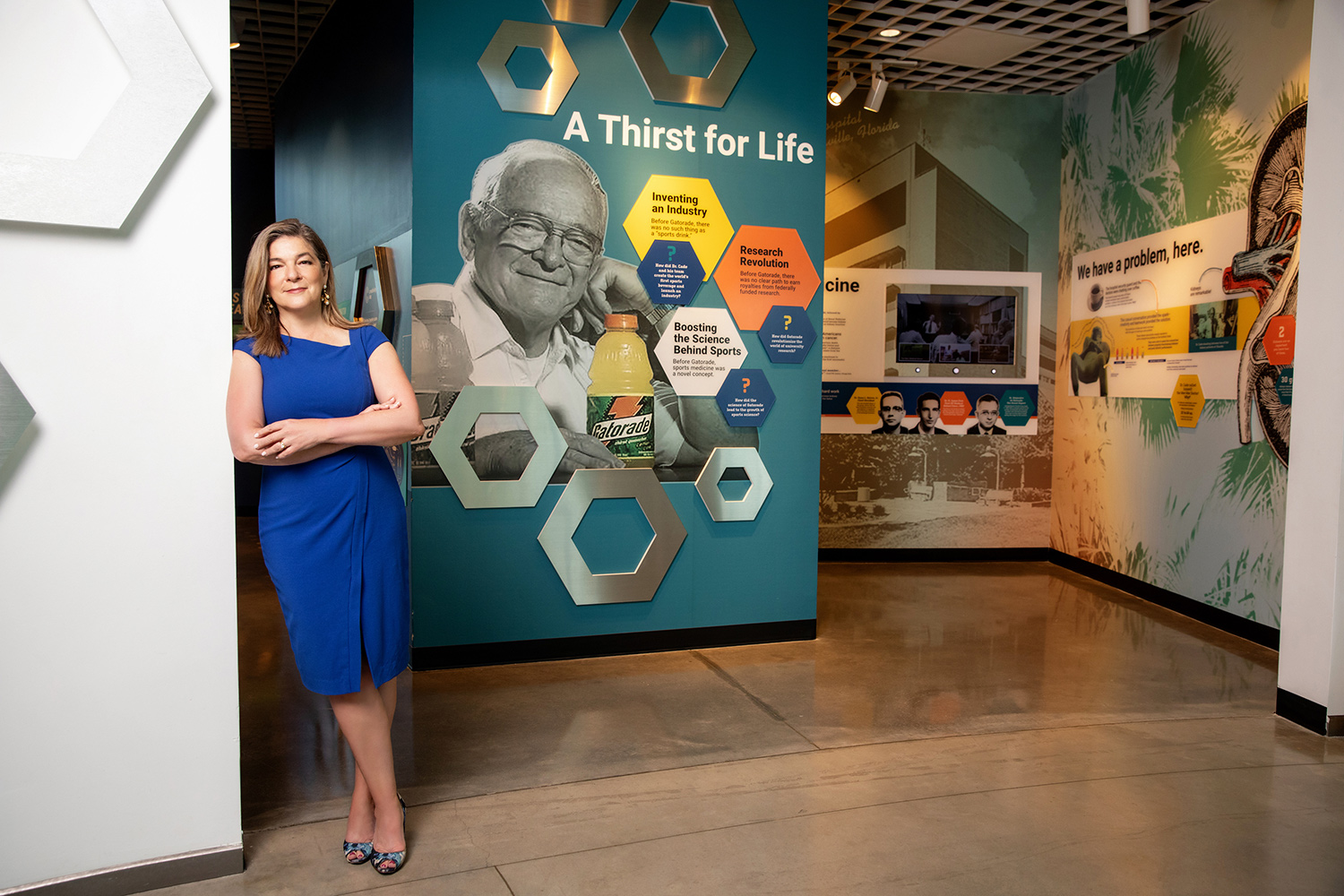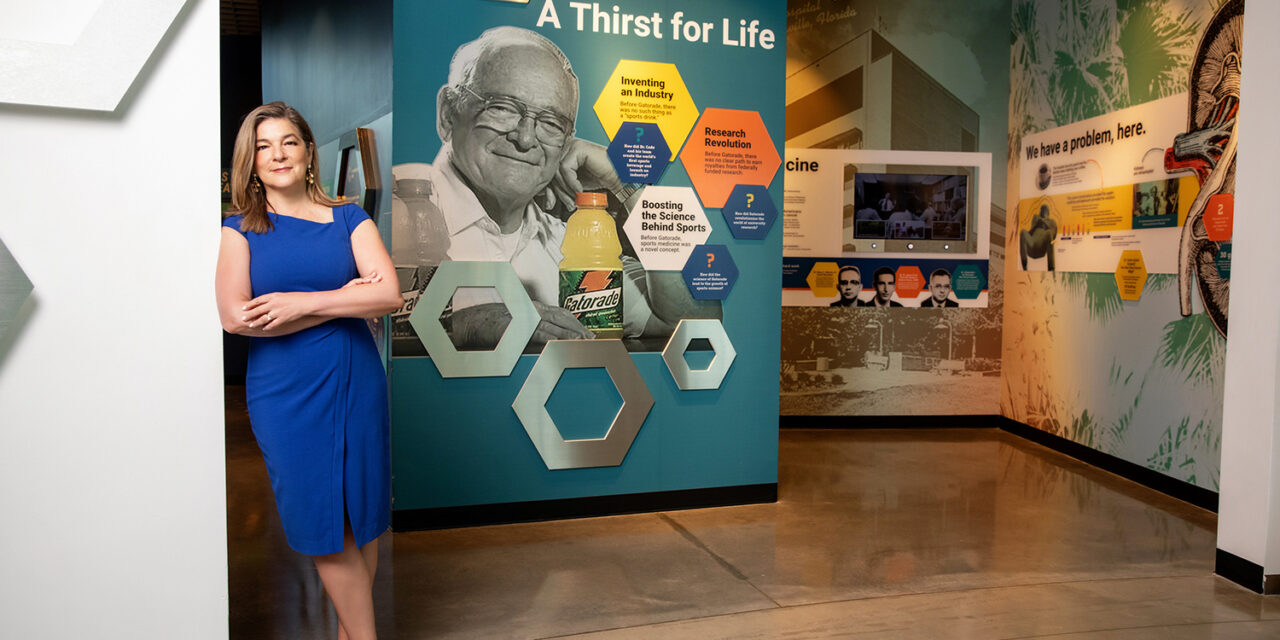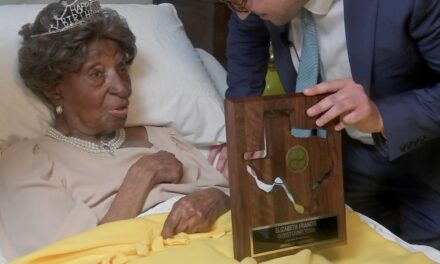
In 1966, Dr. Bradley pitched Gatorade to Alfred J. Stokely, CEO of the Stokely-Van Camp food company, during a Christmas party. Stokely initially declined, but Dr. Bradley showed up the next day at the company’s lab in Indianapolis with a Mason jar of Gatorade.
“He told the secretary, ‘I have an appointment. He’s expecting me.’ He went in and sold the idea. It never would have happened without him,” Phoebe said.
Dr. Shires, who also transferred to UI from UF, was the next to step up on the Gatorade team. He offered to sell Gatorade to Stokely-Van Camp for $1 million. The company refused, but Shires’ skill and persistence resulted in the Gatorade Trust, where the development team would receive a 5-cent royalty for each gallon of Gatorade sold. By 2015, more than $1 billion in royalties had been paid to beneficiaries and their families.
“Dr. Shires had this incredible negotiation skill set,” Phoebe said. “They didn’t want to pay $1 million, so they negotiated royalty structure on every bottle sold. They didn’t cap it. They never thought it was going to make enough money to even think about that, so that contract is still in place [and] it’s the best contract ever.”
Gatorade’s burgeoning sales in the next few years began to catch the attention of UF officials. The university took particular notice after Kansas City Chiefs head coach Hank Stram, who was friends with UF coach Ray Graves, was the first NFL coach to have Gatorade on his team’s sidelines. In 1970, the Chiefs defeated the Minnesota Vikings, 23-7, to win Super Bowl IV.
Phoebe recalled Dr. Cade’s indignation after UF demanded the royalties to Gatorade in 1971.
“The university said, ‘We own it because we paid $46,’ and my dad was like ‘Up your nose with a rubber hose.’ He actually said that,” she said.
After a 31-month legal battle, the university agreed to receive 20% of the royalties. Phoebe said that experience opened her eyes to the collective effort it takes to become a successful innovator and gave her a front-row seat to a change in patent law. In 1980, Congress passed the Bayh-Dole Act, which allows university researchers like her father to benefit from their research.
“I actually feel very, very privileged to have been a part of that, even as awful as it was then, because patent law needed to be updated to reflect a modern research university. The inventor gets royalties, and the university gets royalty. It’s like a win, win, win,” she said.
The Cade Museum wants to see children and other underrepresented entrepreneurs win, too.




